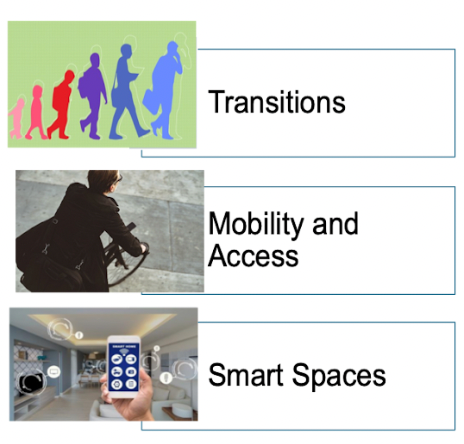Research Focus Areas
CDAT has identified the following three research focus areas as initial starting points for research projects. Learn more about our core research activities.

Transitions
- The purpose of this research focus area is to enable successful transitions between various stages of life for PWDs.
- This focus area aims to leverage extant and emerging technologies for supporting the transition to adulthood (i.e., from high school to post-secondary education and employment) among youth with disabilities.
- This research area can be extended to focus on other key transition periods such as early childhood to school entry, and older age and retirement.
Mobility and Access
- The purpose of this research is to enhance mobility and increase access to spaces PWDs visit.
- This focus area explores the development of technological solutions that enhance mobility for PwDs and ensure that built environments are both accessible and usable for this population.
- The Mobility and Access focus area investigates how access can be improved, and how emerging technologies can be designed to address the unique needs and capabilities of PwDs.
Smart Spaces
- The purpose of this focus area is to assist with activities of daily living (ADLs) within spaces that PWDs work, learn, and live.
- This focus area conducts research on creating technology solutions designed to support independent living and learning for PwDs, as they age, through the development and evaluation of smart homes and spaces.
- Smart spaces can facilitate telemedicine and telework, mitigating the challenges posed by reduced mobility in accessing healthcare, education, and employment.
